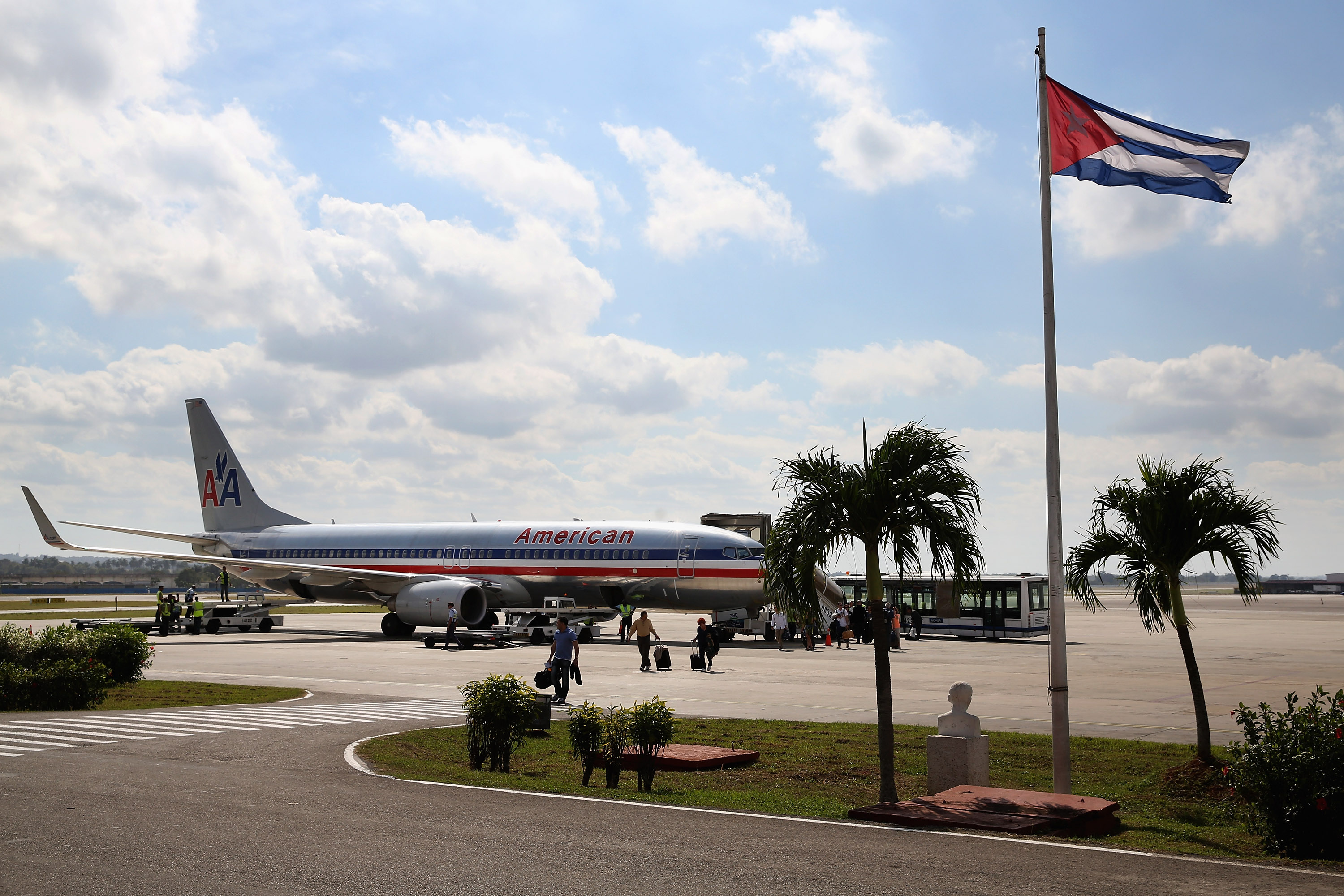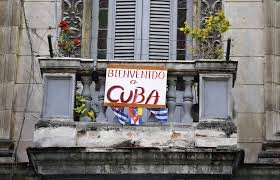
I’m at Cancun's International airport waiting to check my bags and retrieve my ticket for Havana. I arrived by bus from Playa de Carmen about 3 hours early, and though I have plenty of time to spare the ticket line for Air Cuba is by far the longest in the airport.
Before I find my place in line an airport worker asks me if I have a visa. I do not. He promptly sells me one for $25 and directs me towards the appropriate line.
From what I can distinguish there are two lines. One with tourists and the usual luggage—me. And the other for people bringing all sorts of bubble-wrapped goodies to Cuba. I’ve flown many times but never seen a line brimming with so much stuff—DVD players, laptops, CD players, soccer balls, baseball bats, flat screen TVs, motherboards for Windows, a massive 1990 style boom box–it looks like the checkout register at Sears the week before Christmas. A family even has outdoor lawn furniture (bubble-wrapped), and a young girl rests in one of the chairs as she waits for the line to inch forward.
But besides the larger gifts that from what I can tell are being brought by Cuban relatives returning to or temporarily visiting the island, there are also unseen items packed into bags; simple things like toothpaste, deodorant, reading glasses, feminine hygiene products, soap, shampoo, kid’s toys–daily items we take for granted but that after over 50 years of life under the US Embargo have become difficult, sometimes impossible, for the average Cuban to find.
I notice that some of the families in line have 4 or 5 flat screens alone. I wonder as I wait nervously; is Cuba overrun by flat-screen TV’s and electronics?
The lights in the customs room in Havana are noticeably dim.
I watch my feet and rub my passport with my thumb, occasionally glancing up at the line in front of me. Feet, faces. Feet, torso. A neurotic but casual rhythm.
The agents working in the booths are young women in their early 30’s, and the line I’m in is headed towards the only group with two women working together. One of the women appears to be in charge, and with a sharply arched brow she interrogates everyone who comes to her booth with a flurry of questions that fluster her clientele and consume far more time than any of the other lines.
Shit. The last thing I want is this overzealous customs employee giving me problems, pulling me into a side room, or perhaps worst of all, stamping my passport.
There is no law banning U.S. citizens from entering Cuba. There is a law, however, that bans United States citizens (without Cuban relations) from spending money or receiving gifts in Cuba. This legal loophole arrived after a law that would have put an absolute ban on travel to the island was declared unconstitutional in 1963. Fortunately, freedom of movement is one of the rights guaranteed to all American citizens.
Article 13 of the Universal Declaration of Human Rights:
- Everyone has the right to freedom of movement and residence within the borders of each State.
- Everyone has the right to leave any country, including his own, and to return to his country.
But as part of an effort to suffocate communism in Cuba, the US government used slippery language to manipulate and destroy this American constitutional right. Now criminal penalties for violating the embargo range to up to ten years in prison, $1 million in corporate fines, and $250,000 in individual fines; civil penalties up to $55,000 per violation.
Although this ominous fact lodges itself in the back of my mind, I’ve been told that entering Cuban will be no problem. Returning to the U.S. with a Cuban stamp in my passport, or with a missing stamp entirely, and perhaps with a bottle of rum and some cigars tucked away in a suitcase, will be the real feat.
A man directs me to another booth where a light-skinned woman with a soft voice speaks to me in English and nods her head like a co-conspirator when I sheepishly (and unnecessarily) utter “could you…please…not…stamp my passport.”
I later discover that Cuba doesn’t stamp any foreigner’s passport. Apparently they don’t want U.S. Customs agents to harass travelers who later arrive at a US border with the Cuban stamp, but I am not certain this is true, or that it is the only reason.
The woman casually stamps the visa I purchased at the airport in Mexico that is tucked inside of my passport, buzzes a red door, and just like dat—bienvenido a Cuba!

This article is part of a 15 part series.
**Under the Obama administration the laws regarding travel to Cuba were changed.